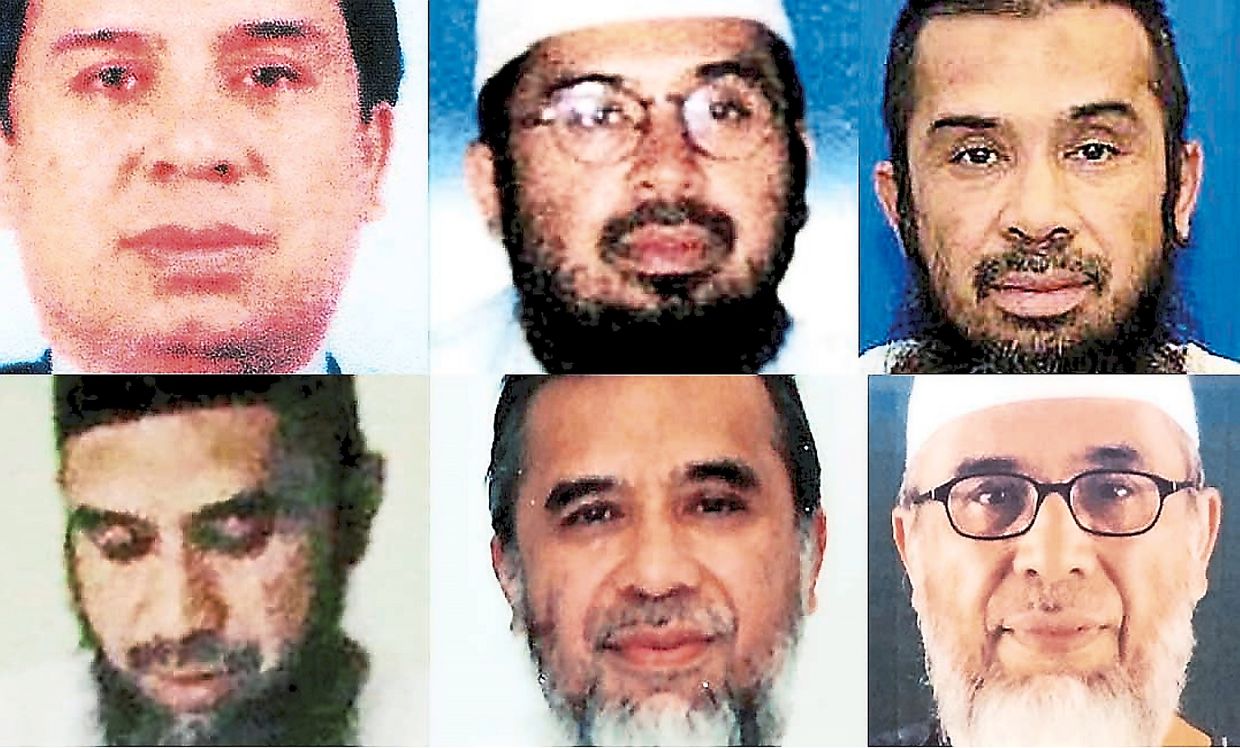
The many faces of Hambali: His latest look has even surprised local security officials.
KUALA LUMPUR: A long legal journey awaits accused Indonesian terrorist Hambali and his alleged two Malaysian partners Mohamed Farik Amin and Mohamed Nazir Lep. Although a hearing has finally begun, Hambali has already spent 18 years behind bars.
But even that has been bogged down by legal technicalities, with no fresh date fixed for a proper trial.
The three remain incarcerated in the US Naval base in Guantanamo Bay, Cuba, and are among the 39 detainees left of the original 780 detainees held in the high-security prison set up in 2002.
They are classified as “high value detainees” and of “high-risk threat to the United States and its allies.”
A hearing, conducted by the US military commission, began last August, but their case is now on hold.
The Guantanamo military commission, set up in 2001, is a military court of law traditionally used to try the law of war and other offences.
The three have been charged with conspiracy, murder, terrorism, destruction of property and attacking civilians.
With no date set for a trial, it looks like their next legal step remains uncertain.
Hambali, who is also known as Encep Nurjaman and Riduan Isamuddin, was a permanent resident in Malaysia.
He was the alleged key Al-Qaeda leader in South-East Asia, and the two Malaysians were personally recruited by him for a suicide attack in the US, which was later aborted.
The charges against the trio centre on two terrorist attacks in Indonesia, where US citizens were among the casualties.
But the charge implicates all of them in every significant terrorist activity up to and a year beyond his capture.
They are also linked to the deadly bombings in Bali nearly 20 years ago, which killed more than 200 people, and a bombing in Jakarta that left 12 dead and scores more injured.
They were arrested in Thailand in 2003 before being sent to Guantanamo Bay in 2006, where they have been since.
All three now look very different, as seen from the latest pictures obtained by their defence lawyers. Malaysian security officials have also privately expressed surprise at their appearance.
The Sunday Star spoke to Hambali’s lawyer, Jim Hodes, who said the court hearing was called “an arraignment where an individual is advised of their rights by a judge and formally charged with a criminal offence and his/her attorney would then declare the client’s intent to enter a plea or plead not guilty or reserve on a declaration for a variety of reasons.
”In August, it turned out that the government had hired translators who were either woefully inadequate or horribly conflicted and thus, our clients were never properly advised of the charges,” he said in an email interview.
He said a hearing was essentially just the beginning of the process of going to trial at some point in the future.
”The case has taken 18 years to get to this point because the US government is actively trying to keep hidden the fact that they tortured my client, in violation of both US and international law.
”The case is before a military court because a civilian federal court would never allow the things the government is trying to do,” he said.
Besides Hodes, two other lawyers, Christine Funk and Brian Bouffard, represented Mohd Farik @ Zubair Zaid and Mohd Nazir @ Lillie respectively.
Hodes said his client denied being involved in Al Qaeda.
The lawyers are provided by the government and recruited through the Military Commission Defence Organisation.
The three refused to enter a plea when they were arraigned on Aug 30-31, citing incompetence of the translators, which resulted in inaccurate translations.
Bouffard said Nazir could not reliably understand court proceedings in his native language, Bahasa Malaysia, and had to switch to Bahasa Indonesia, “a language he only somewhat understands” adding that Nazir was tortured in obtaining information.





